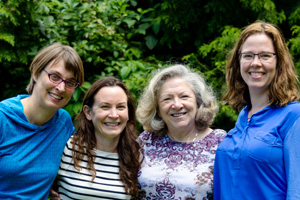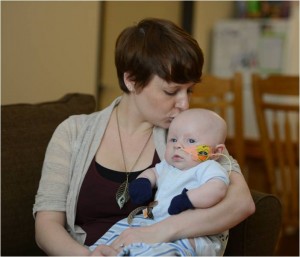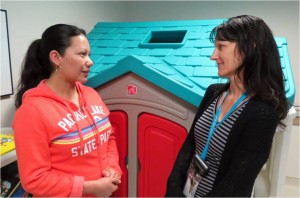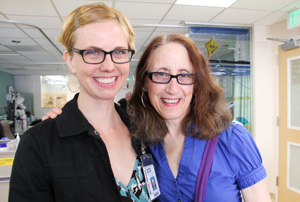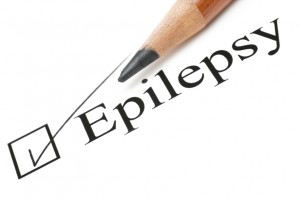This month, Dr. Kym Ahrens is going to camp with 24 teenagers. Some people would call that an adventure; others, a challenge. Ahrens calls it research. Ahrens, an adolescent medicine specialist and researcher within Seattle Children’s Research Institute’s Center for Child Health, Behavior and Development, is studying whether an intensive, five-day “dose” of a specially designed […]
This is a special guest post from JoNel Aleccia, staff writer at Fred Hutchinson Cancer Research Center. See the original article and photos here. Ezra Dixon was born April 7, four months after the state of Washington first starting screening newborns for the disorder commonly known as “bubble boy disease,” which leaves its patients at the mercy […]
Complications that can arise around the time of birth may reduce oxygen and blood flow to a baby’s brain, causing hypoxic-ischemic encephalopathy (HIE), a leading cause of death or neurological impairment among infants. In the past eight years, cooling therapy (hypothermia) has become the standard form of care for HIE, as it’s been found to […]
Paige Norris’s young life seemed to be sailing along with fair winds and sunny skies. At 10 years old she was an enthusiastic tennis player with lots of friends and a stellar academic life – two years ahead in every subject. But sometime in fourth grade her internal weather shifted, and she developed debilitating abdominal […]
The sun was bright when Lyla Conrad and her father arrived early for softball practice to catch a few pop flies. Lyla, 9 at the time, had caught hundreds before, but that day she lost one in the sun. It fell straight down into her eye. Almost immediately, her eye was swollen and she felt […]
At the American Society of Clinical Oncology (ASCO) Annual Meeting, Children’s Oncology Group (COG) researchers presented promising findings from an international study that has identified a new therapy for treating rhabdomyosarcoma, a common childhood cancer. The therapy has fewer harsh side effects, meaning it lessens the chance of infections, need for blood transfusions and infertility […]
Meet Molly On Feb. 17, 2008, Erin and Bill Hamilton welcomed their daughter Molly into the world. She appeared to be a perfectly healthy, 9-pound baby girl, but a newborn screening test revealed Molly had cystic fibrosis. “We were devastated,” Erin said. “We didn’t know anything about cystic fibrosis and had no idea how this […]
A patient arrived at Seattle Children’s Emergency Department by helicopter, alone and unconscious. As the Emergency Department team worked to resuscitate the boy who had nearly drowned, his parents drove several hours in stunned silence to the hospital, hoping their son would be alive when they got there. After receiving the good news that he […]
Each week, poets Ann Teplick and Sierra Nelson arm patients at Seattle Children’s Hospital with a notepad, pen and thought-provoking prompts to help them discover the power, and therapeutic nature, of the written word. Some patients use writing to share their story or process difficult emotions, while others use it to ignite their imagination and […]
While many people with epilepsy live a full life, some die abruptly without warning or other clear medical cause due to a devastating phenomenon called sudden unexpected death in epilepsy (SUDEP). SUDEP is the most common cause of death in those with severe forms of epilepsy where seizures cannot be controlled with treatment, but what […]

